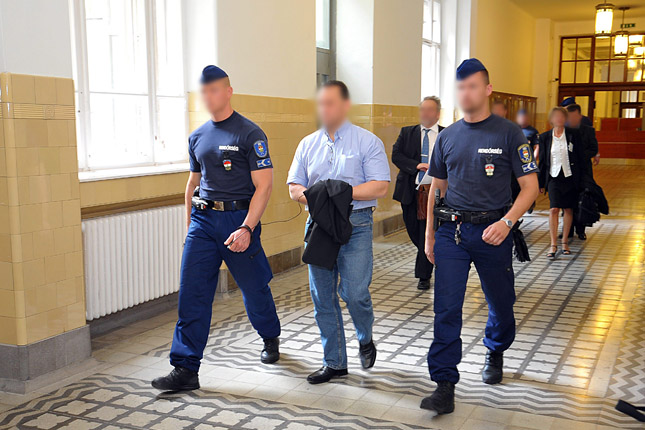The https://english.atlatszo.hu use cookies to track and profile customers such as action tags and pixel tracking on our website to assist our marketing. On our website we use technical, analytical, marketing and preference cookies. These are necessary for our site to work properly and to give us inforamation about how our site is used. See Cookies Policy
Atlatszo.hu publishes records of crime boss’ downfall
Shock waves hit the Budapest criminal underworld when investigators cracked down on well known crime boss Laszlo Vizoviczki. Vizoviczki operated an entire empire of clubs and bars and also had his hand in a whole range of illegitimate activities, including bribing the police. Atlatszo.hu acquired the records of the wiretaps which law enforcement conducted at Vizoviczki’s associates, and is now making them public. The conversations show the methods used to make money disappear, as well as painting a portrait of a heavy-handed leader who had trouble keeping the loyalty of others.

The status quo was dramatically changed in 2012, when riot police stormed several bars and locales owned by businessman Laszlo Vizoviczki, who was also detained for questioning. Leading up to that point, it was a well known secret that he was heavily invested in a wide range of illegal activities and had strong ties to organized crime, as Atlatszo.hu reported earlier.
It was essentially common knowledge that illegal drugs were always for sale on Vizoviczki’s premises and there were several instances where bouncers resorted to excessive violence. All this could go on uninterrupted, since there were always people in the right places who made sure that the authorities looked the other way.
During the 2012 investigation, which was in all likeliness preceded by a cleanup within the police ranks, it quickly became clear that the empire wasn’t wholly stable. Even though there was plenty of money moving around, there were also heavy losses, and people inside the organization didn’t exactly go overboard to represent the interests of their incarcerated boss.
Atlatszo.hu has acquired the surveillance records of the investigation and we are making them public. First we looked at everything that happened in the Vizoviczki network directly after the leader was imprisoned.
One record shows a call made to a manager who is instructed to tear up the “drawings” and to make all traces disappear. It is fair to assume that these simple schematics were to lay out the path along which the money is moved between the various companies, to launder it and keep it away from scrutiny. Although the employees didn’t want the authorities to look, several of these ‘drawing’ had already been confiscated by the arresting officers, who also found Vizoviczki to be in possession of classified documents which underlined how well he was connected. He also kept weapons at his home, which the investigators found.
The ways in which his subordinates discussed his arrest show that they had a poor opinion of their boss. They thought he had an inflated ego which his employees believed made him reckless and led to him getting caught, ultimately resulting to the downfall of his empire. As such, some of the records reveal his executives discussing their intent to cooperate with the authorities rather risking making false testimonies to protect their boss.
Although it is clear that Vizoviczki was by no means “employer of the year” material, those that worked for him were also no angels. The records and accounts show several instances where employees tried to embezzle money, hold back tips they received and in general give their employer a strong grounds to distrust them. The thinking within Vizoviczki’s family was to operate with a skeleton crew, and even those needed to be under constant supervision to keep them in check, otherwise they would be sure to stick their hands in the till.
There is fairly little mention of police contacts in the records. However, there is confirmation that there was a connection as one of Vizoviczki’s associates is heard making a call instructing someone to have a look at the official investigation records, and the person at the other end of the line promises to oblige.

